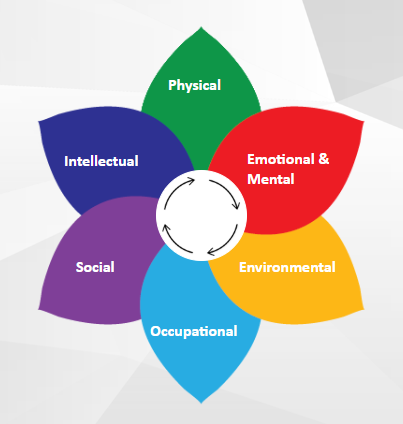As one of the three pillars for a healthy lifestyle, healthy sleep is essential along with nutrition and exercise. For optimal health, the American Academy of Sleep Medicine (AASM) recommends adults sleep seven or more hours on a regular basis. Now the AASM is offering a “Sleep Health and Wellness Resource” to encourage the medical community to do so as well.
It can be especially difficult for the medical students and residents to make time to sleep. However, it is important to consider your own health in addition to your patients. Providing quality care depends on your own health and well-being.
Prioritizing well-being can start with simple reminders about all areas that need attention from sleep. Focusing on the six domains of well-being will set the stage for increased productivity and an overall healthier sleep pattern.
Physical
Research shows that improved sleep quality and quantity can improve physical performance and stamina.
Emotional
Numerous studies have shown a correlation between sleep deprivation, anxiety and depression. Healthy sleep can help drive a positive outlook and a heightened level of professionalism.
Environmental
Research from the AAA Foundation for Traffic Safety suggests that an average of 328,000 car crashes in the U.S. involve a drowsy driver each year, including 6,400 fatal crashes. These accidents are preventable with healthy sleep, which can save lives.
Occupational
The National Safety Council reports that 13 percent of workplace injuries can be attributed to fatigue. Healthy sleep can improve your quality of work and help reduce fatigue-related errors, which is crucial in the medical field. Sleep also helps individuals reach peak work performance.
Social
A physician’s social skills play an important role in the provision of patient-centered care. Insufficient sleep can hinder your patient-provider communication. For example, sleep deprivation can impair the accurate recognition of emotions. Healthy sleep can enhance personal interactions and positively impact your conversations with patients.
Intellectual
Continued learning is critical for medical students, residents and fellows. It is important to recognize that insufficient sleep can impair concentration and academic performance. In contrast, healthy sleep enhances cognitive abilities and promotes memory consolidation.
The new “Sleep Health and Wellness Resource” from the AASM is a free, online tool for medical students, residents and fellows with information and tips about healthy sleep and its relationship to the domains of well-being. Featuring content to help you understand personal sleep health, the program provides a sleep score and feedback based on your overall sleep health before sharing resources for additional education about sleep problems such as insomnia, technology and burnout. To learn more about the program, or to find additional resources to help you balance life’s demands with a better night’s sleep, visit https://aasm.org.


